
A three-year old boy from Welkom, Kearabetswe Mokoena, stole the show at the spring graduation ceremony of the University of the Free State (UFS) in Bloemfontein. He was dressed in an exact replica of the academic outfit worn by his father, Mr Ketseletso Mokoena, who obtained his LLB degree from the UFS. The outfit was made by Kearabetswe’s mother Mrs Ennie Mokoena. From the left are Mr Mokoena, his son Kearabetswe, and Prof Frederick Fourie, Rector and Vice-Chancellor of the UFS.
Photo: Lacea Loader
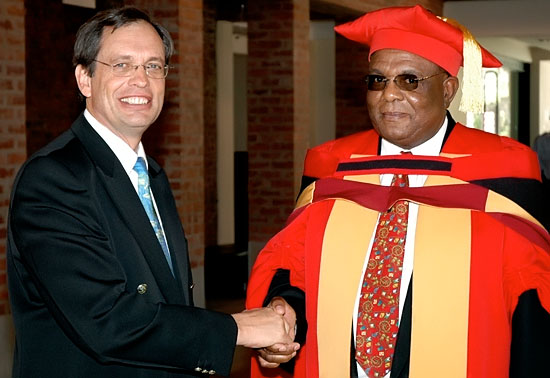
Prof Mos Thulare (acting Rector and Vice-Chancellor of the Central University of Technology) obtained his LL.B. degree during the spring graduation ceremony of the University of the Free State (UFS) in Bloemfontein. On the photo, he is congratulated by Prof Frederick Fourie (Rector and Vice-Chancellor of the UFS).
Photo: Stephen Collett
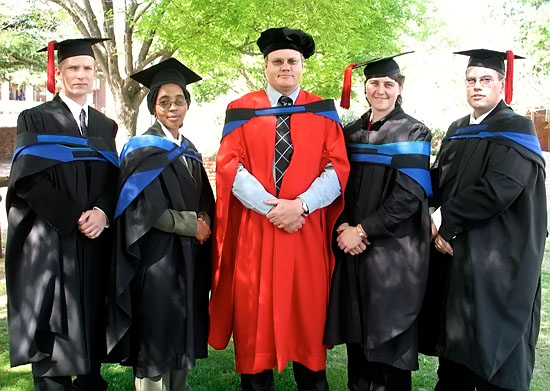
Altogether five master's degrees in Physics were awarded during the University of the Free State's (UFS) spring graduation ceremony in Bloemfontein. It is the biggest group of master's degrees in the history of the UFS Department of Physics awarded during a graduation ceremony. From the left are: Richard Harris, Puleng Ramoshebi, Prof Hendrik Swart (Head of the UFS Department of Physics), Lisa Coetsee and Etienne Wurth. One of the students, Gerhard Olivier, was absent when the photo was taken.
Photo: Lacea Loader
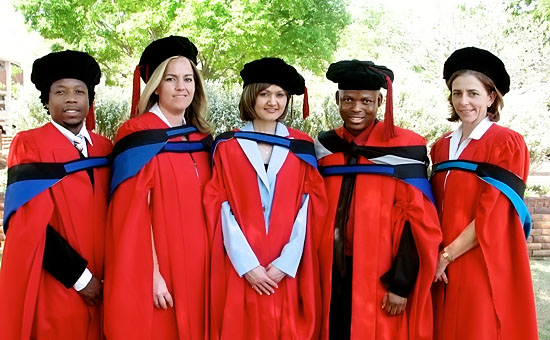
Altogether 29 doctorates were awarded during the University of the Free State's (UFS) spring graduation ceremony in Bloemfontein. Some of the doctorandi are from the left: Drs Nicholas Mtshali (Chemistry), Candice Jansen van Rensburg (Zoology), Ina Claassens (Physics), Martin Ntwaeaborwa (Physics) and Vicki Tolmay (Plant Breeding).
Photo: Lacea Loader
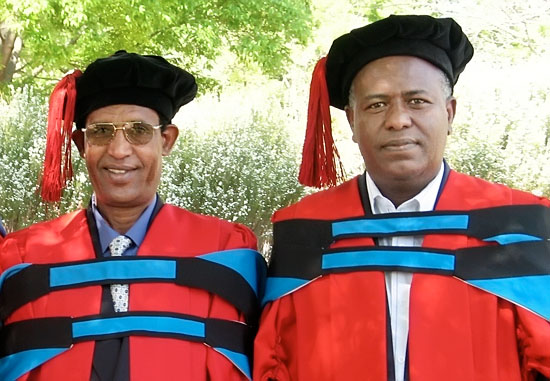
A great number of students from Africa were among the 29 students who received their doctorates during the University of the Free State's (UFS) spring graduation ceremony in Bloemfontein. From the left are: Drs Amaha Kassahun (Grassland Science) and Tolessa Debele (Soil Science), both are from Ethiopia.
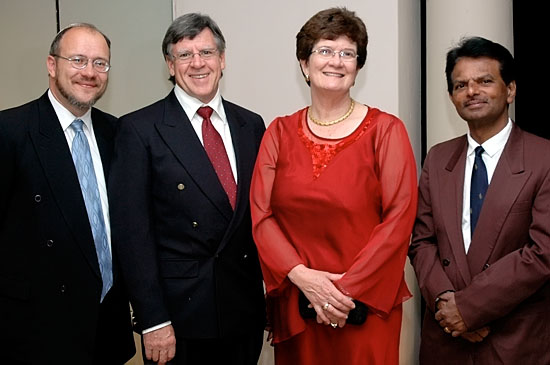
A number of doctorates were awarded to students across the world during the University of the Free State's (UFS) spring graduation ceremony held in Bloemfontein. From the left are: Drs Eli Kohn (from Israel who received a doctorate in Near Eastern Studies), Prof Philip Nel (UFS Department of Afro-asiatic. Studies, Sign Language and Language Practice), Prof Annette Wilkinson (Centre for Higher Education Studies and Development at the UFS) and Dr Padmanabhan Nair (from India who received a doctorate in Higher Education Studies). Prof Nel was Dr Kohn's co-promoter and Prof Wilkinson was Dr Nair's promoter.
Photo: Stephen Collett